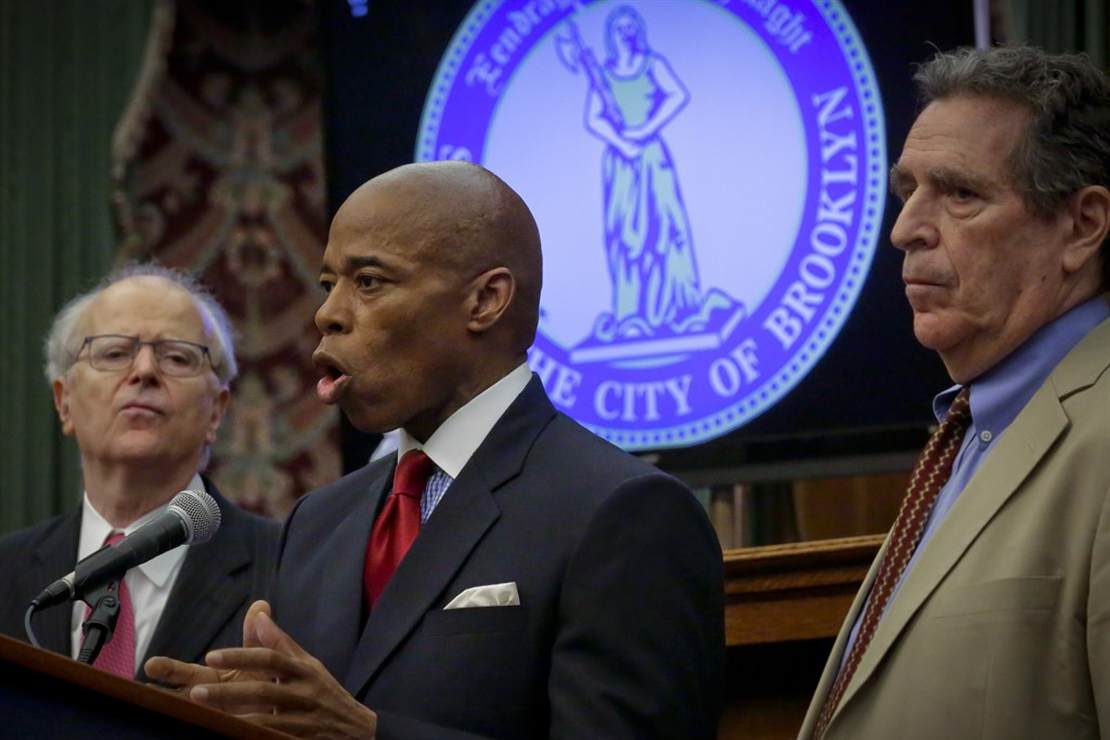
A couple of weeks ago, we learned of the sad story of 48-year-old Daniel Enriquez, a finance professional from Goldman Sachs. He was riding the Q-train in Manhattan to a working brunch on a Sunday morning when Andrew Abdullah walked up unprovoked and shot him dead, robbing his body before fleeing. Enriquez was the 18th homicide victim on the subway in less than two years. Abdullah was eventually identified and turned himself in. He is now facing murder and illegal gun charges.
But the real question we should be asking ourselves is why Abdullah was out on the streets and able to murder Mr. Enriquez to begin with. The New York Post learned he is a career criminal with at least 19 prior arrests, including illegal weapons charges. His most recent arrest was just last month. Prosecutors asked that Abdullah be held on $15,000 cash bail. The judge once again released him on his own recognizance. Only a few weeks later he was standing over the dying body of Daniel Enriquez.
The Post’s Rafael A. Mangual points out that the law and order policies of Mayor Eric Adams stand no chance of success if the rest of the justice system isn’t similarly committed to the idea that bad guys belong behind bars. Efforts at eliminating the so-called bail reform laws in the state legislature have fallen flat and the City Council has not exactly been enthusiastic in supporting the Mayor’s goals. So what can he do? Mangual has a few suggestions for him.
For starters, he can (and should) continue to apply public pressure for changes to policies that have lowered the transaction costs of crime (bail reform, “Raise the Age” and “Less Is More”) and raised the transaction costs of enforcement (discovery reform and the “diaphragm law”).
One thing he hasn’t tried on this front is to make public the sort of data that would give us a clearer picture of the crime problem’s scope and the role certain policies may be playing in that problem…
READ RELATED: With Roe v. Wade in the Balance, the Left Is Changing Its Tune From 'What Are Women?' to 'We Are Protectors of Women'
Next, the mayor should think about how to amend the plan to close the jails on Rikers Island and replace them with borough-based jails that would hold far fewer inmates (just 3,500) than the more than 5,000 jailed on a given day now — a number that already reflects a sharp decline in recent years thanks to decarceration efforts like the statewide bail reform enacted in 2020.
These are all fine ideas, but some of them may be redundant. Adams has been applying very public pressure to both the legislature in Albany and the City Council in Gotham to roll back the progressive “decarceration” laws that are leading to all of this carnage. They aren’t listening. And it appears that the public is already very much aware of at least most of this information. That’s how Adams was elected.
Could more be done on that front? Certainly. Assign someone to gather the full rap sheets on all criminals who are detained and the names of the prosecutors and/or judges who put them back out on the streets. Give that information to the press on a weekly basis. I’m sure that at least the New York Post would publish it even if the Times turns a blind eye.
As to the plans for closing Rikers Island and replacing it with smaller jails with less total capacity, that’s a bit above the Mayor’s pay grade. Those plans were in place long before he came to office. But they still might be able to be modified. Open the new jails but keep at least part of Rikers open while it’s being refurbished.
The author has some other common-sense ideas and I’m guessing Adams would be open to them. But there’s still one underlying issue that’s not addressed. If there is to be widespread, positive change that increases safety while reducing crime and improves the overall standard of living, it can’t be driven by one elected official. It requires a change in culture in the City of New York. As long as New Yorkers keep electing a stream of the same liberal Democrats who fall back on the same policies and seemingly believe that the gangs who control much of the city will just put down their guns and stop slinging drugs if we’re just nice enough to them, the city is doomed. Adams was the exception to the rule, but the City Council and the DAs’ offices are full of the same old people, with only the names and faces changed. Adams doesn’t need to lead a revolt in City Hall or in the legislature in Albany. He needs to lead a revolt at the ballot box. And his victory last year gives me at least some hope that he could do it.
Source:





